By clicking a retailer link you consent to third-party cookies that track your onward journey. This enables W? to receive an affiliate commission if you make a purchase, which supports our mission to be the UK's consumer champion.
7 easy ways to get fresh-smelling laundry
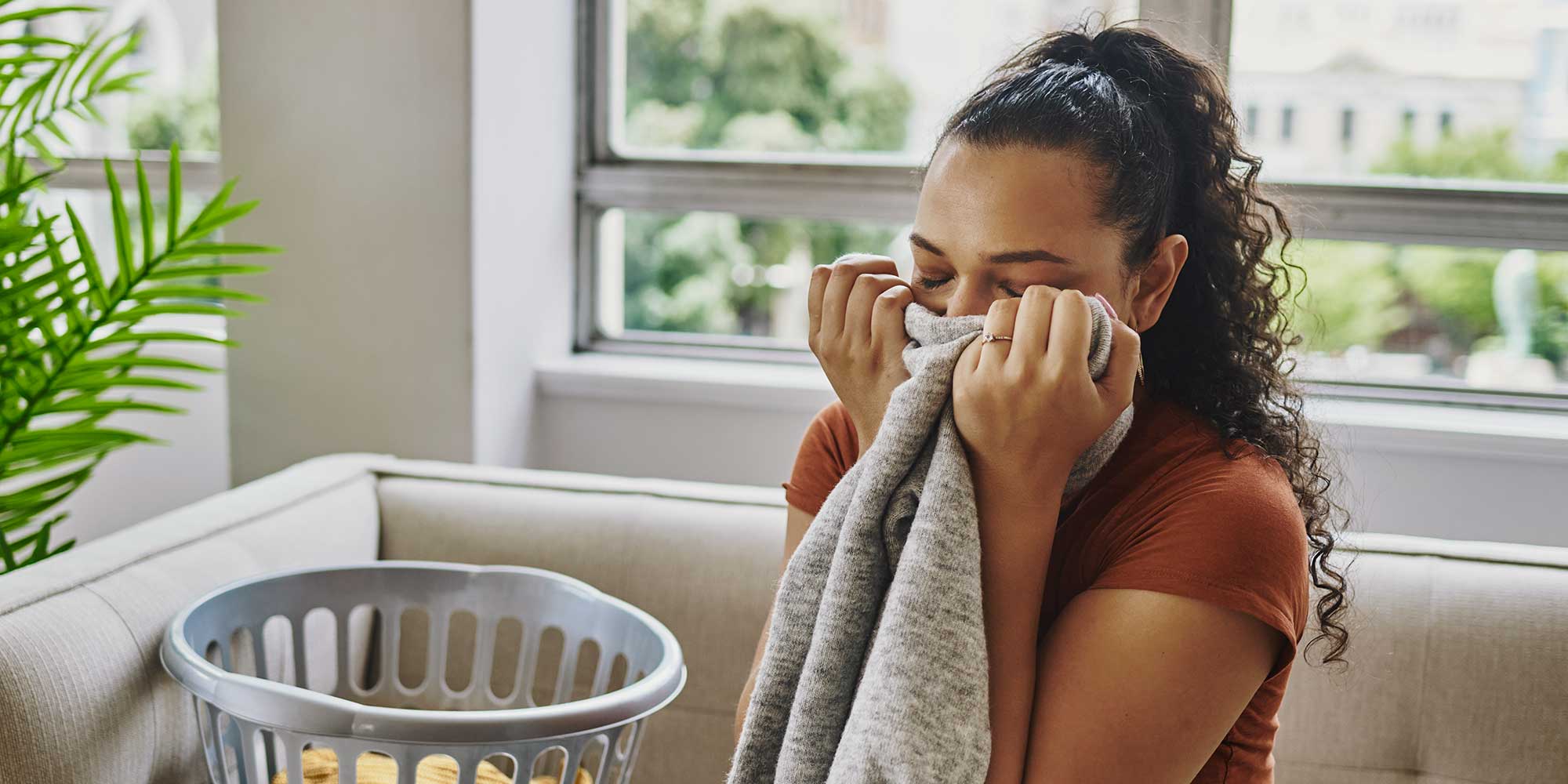
In an ideal world, your clothes would emerge from the washing machine smelling fresh and clean, but all too often your detergent will struggle to achieve this on its own.
With the weather turning cooler and wetter, it can be especially difficult to get that line-dried laundry smell.
But all is not lost – here are seven easy ways to get fresh-smelling laundry (and no, chucking in a load of fabric softener is not one of them).
1. Clean your washing machine frequently
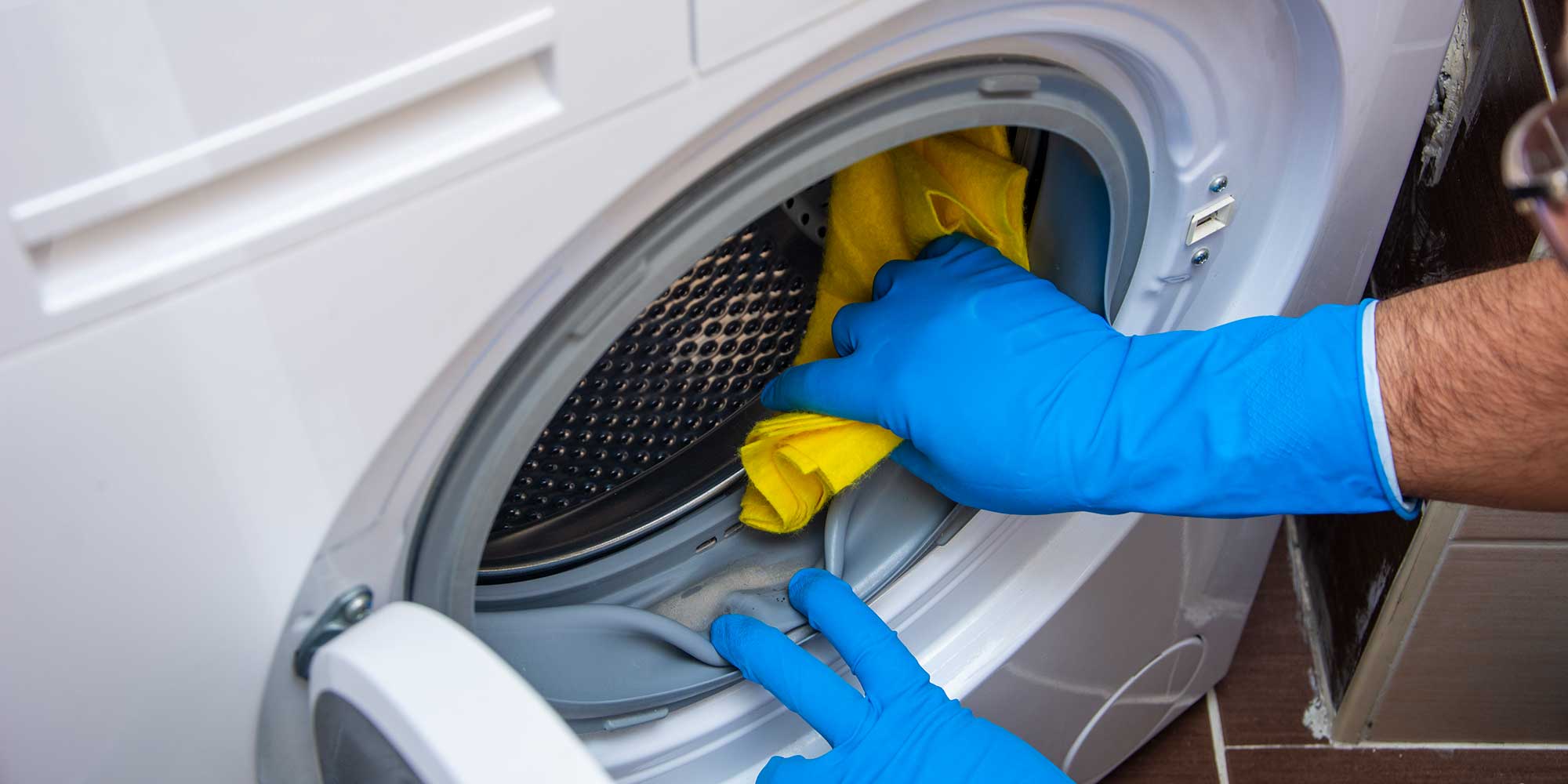
Perhaps the most obvious way to keep your clothes smelling clean is to keep your washing machine spick-and-span – and this is a very easy job if you keep on top of it.
Once a month, run a hot service wash (60°C or higher) with an empty drum. This will rid your machine of any mould and bacteria that can build up if you tend to run lower-temperature (and much more bill-friendly) washes.
It's also a good idea to clean around the door seal after every few loads, and remove the detergent drawer and lint filter for a quick rinse under warm water.
Leaving the door open between washes is very helpful too, as it allows all of the excess water to evaporate from the drum so that it doesn't take on that 'musty' smell.
Read our guide on how to clean a smelly washing machine for further advice
2. Don't overload the drum
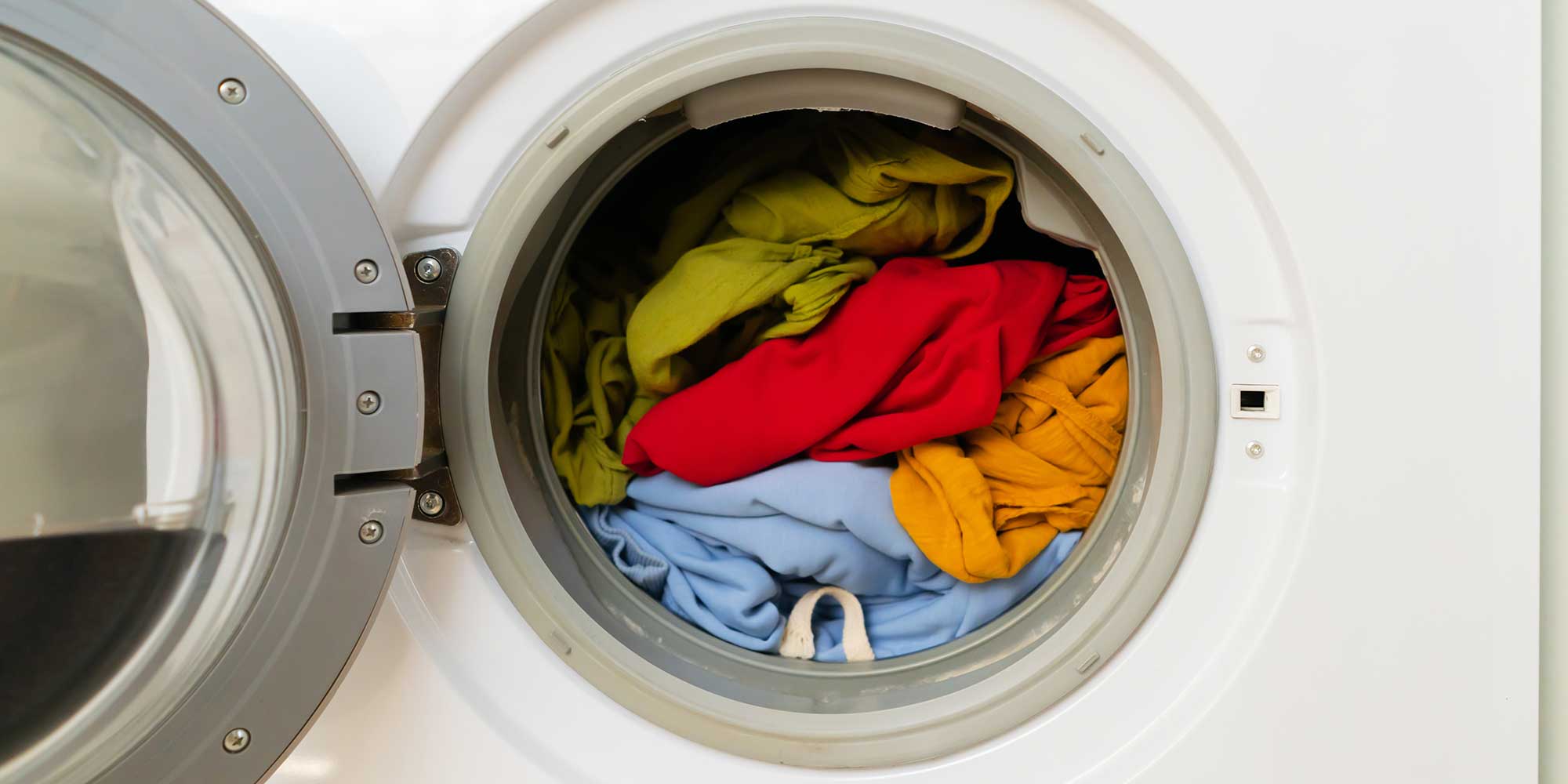
Overfilling your drum is a sure-fire way to ensure your items emerge from the wash under-cleaned and smelling far from fresh.
If the machine is full to bursting, there's no room for water and detergent to be distributed evenly through the load, so some of your items might barely be damp by the time the buzzer sounds.
You can usually wash more cottons (such as bed sheets) than synthetics (such as gym kit) in one go. But if you're in doubt, just split one larger wash into two smaller loads. You'll thank yourself later when you see (and smell) the results.
3. Pre-soak any smelly items
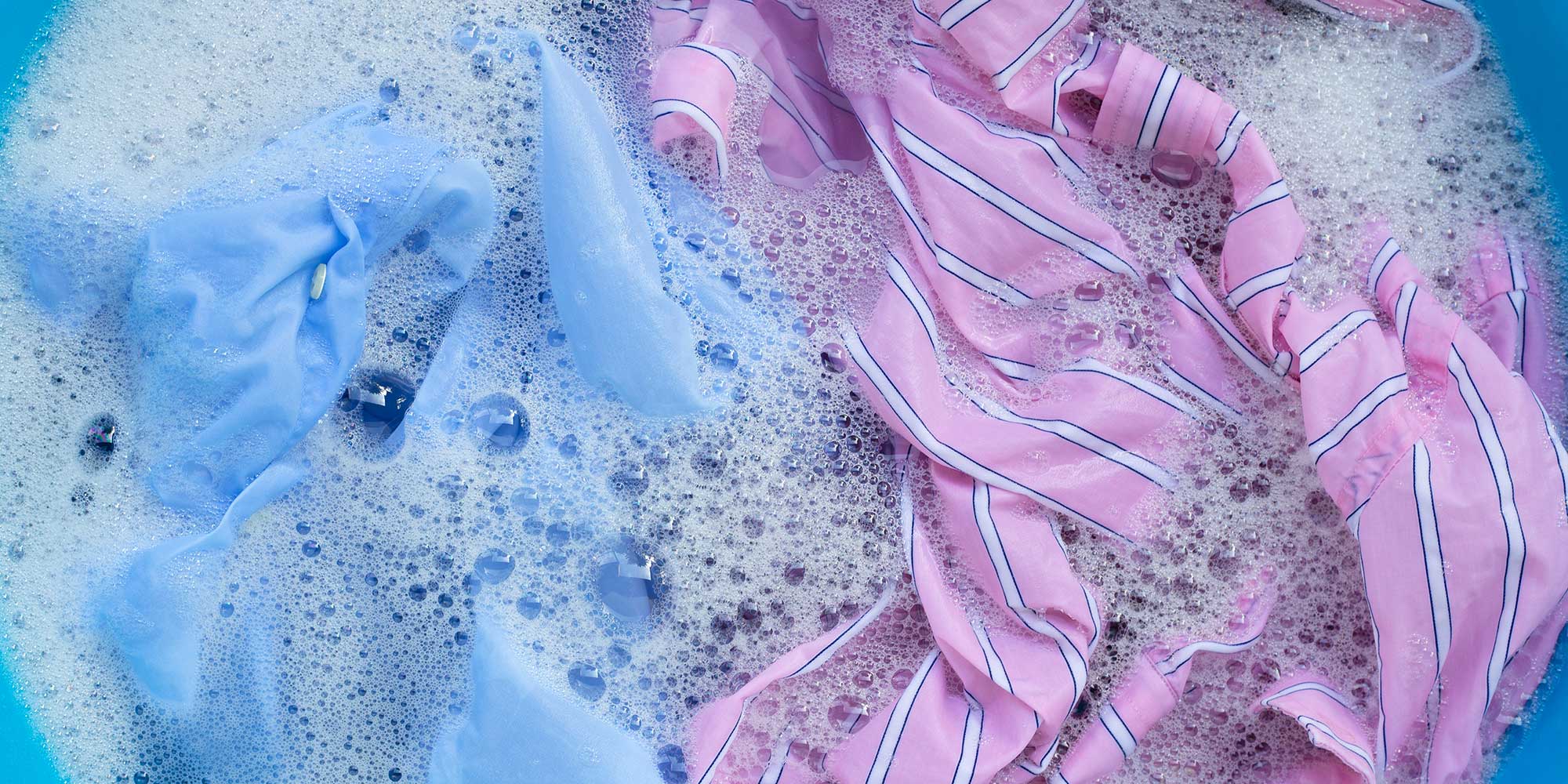
If your laundry basket is full of grass-stained rugby kit or sweaty gym gear, the chances are it's already not smelling its best.
Rather than chucking these items straight into the machine, give them a good soak beforehand to help minimise the chance of odours clinging on through the wash.
You can dissolve half a cup of baking soda in a basin of warm water, soak the garments for half an hour and then wash them in the machine as normal. You can soak particularly smelly items for longer if necessary.
White vinegar works well too – just use a ratio of 1:4 vinegar to water and the same method as before, but be sure to give everything a good rinse before it goes into the drum, as the acidic vinegar could damage your machine.
For more laundry tips, see how to wash clothes, towels and bedding
4. Use a Best Buy laundry detergent

We've tested 34 different laundry detergents from both big brands and supermarkets, so we know exactly which ones will clean your clothes most thoroughly and give you the best chance of eliminating stubborn odours.
Our cheapest Best Buy detergent costs just 9p per wash load, so you don't need to spend a lot to get your favourite outfits spotlessly clean.
Generally, we find that powders are the best choice for white washes, while liquids, gels or capsules are better suited to darks and bright colours.
Discover the best and worst laundry detergents, whether you prefer capsules, liquids or powders
5. Skip the fabric softener
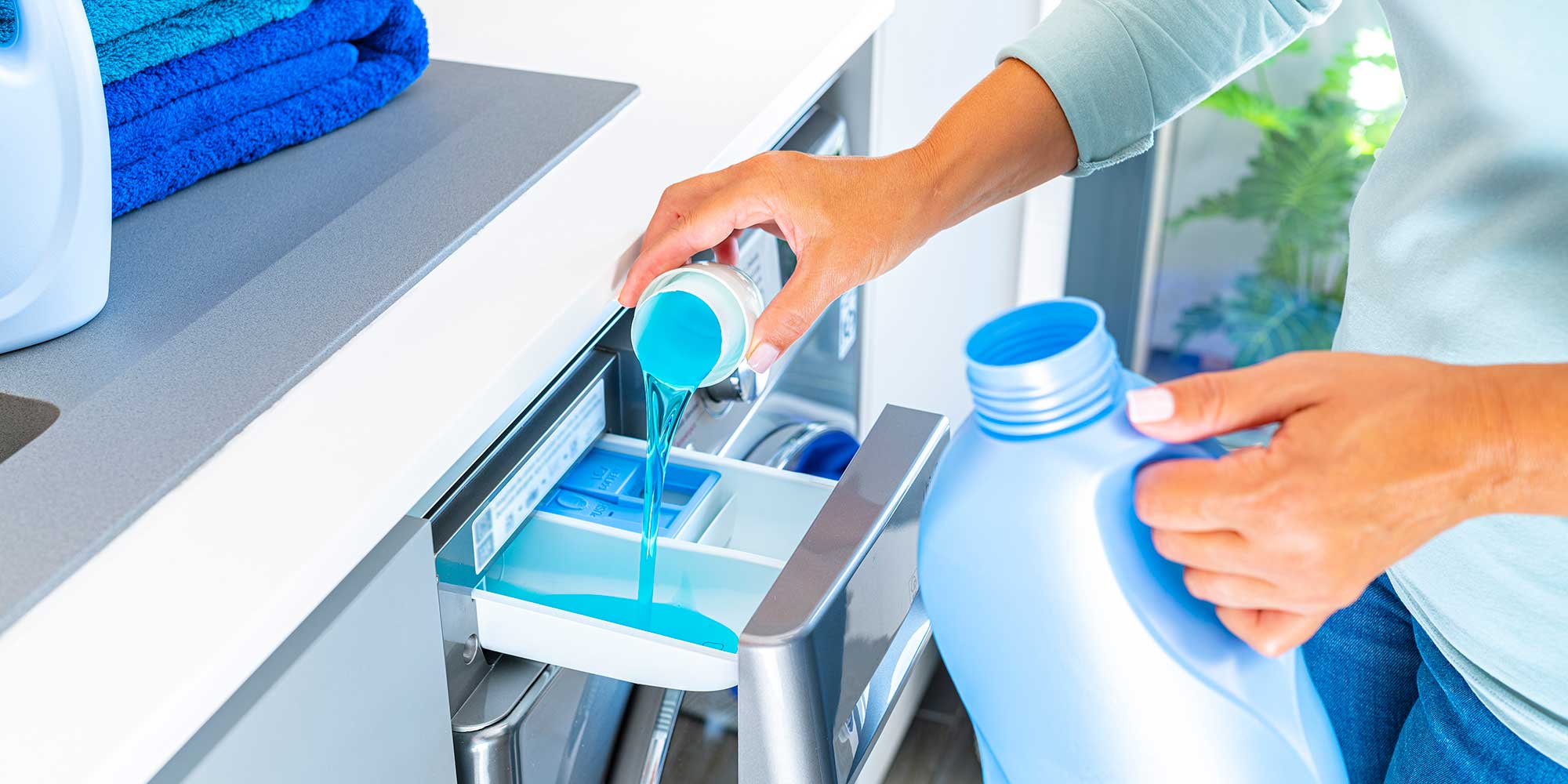
It may sound counterintuitive, but repeatedly adding fabric conditioner to your washes can actually make your clothes smell worse over time.
This is because it leaves a residue on fabrics that gradually builds up, which in turn makes it harder for detergent to penetrate (and therefore thoroughly clean) your clothes.
It can also essentially 'trap' odours in your clothes by creating a coating over the top of them, making them much trickier to shift for good.
Worried about what else you might be doing wrong? Read our guide on 5 laundry habits to stop immediately
6. Remove clothes promptly after washing

Allowing clothes to sit in a warm, damp drum for hours after the wash cycle has finished is not going to do you any favours.
The general rule is that a few hours is the limit before you'll need to wash the items again, but in an ideal world, you'd remove your clean items as soon as possible when the cycle ends. The delay-start setting on your machine could come in handy here, allowing you to schedule a load to finish when you'll have time to handle it.
Certain fabrics, such as cotton and wool, hold onto moisture for longer, too – which makes them even more susceptible to bad smells.
Unsure what setting you should be using for each laundry load? Head to our handy washing machine temperature guide
7. Dry items with care

Great news: your items have emerged from the washing machine smelling beautiful. But how do you ensure they maintain that level of freshness once they've finished drying?
It's always preferable to dry outdoors in the fresh air, but if that isn't possible, you can achieve similar results on an airer indoors. Simply make sure that the room you dry your clothes in is kept very well ventilated – just open a window – or use a dehumidifier. Not only will this keep musty smells at bay, but it can also help to speed up the drying process.
Take care not to overload your airer, as this will make it harder for air to circulate between your clothes and dry them evenly. Split larger wash loads over two airers if needs be – you'll be far happier with the results.
If you decide to use a tumble dryer, smaller loads are the key to better smells, so consider whether there's anything that can be left to dry naturally instead.
Heated clothes airers vs tumble dryers vs dehumidifiers – discover the best and cheapest way to dry clothes indoors
What about scent boosters?
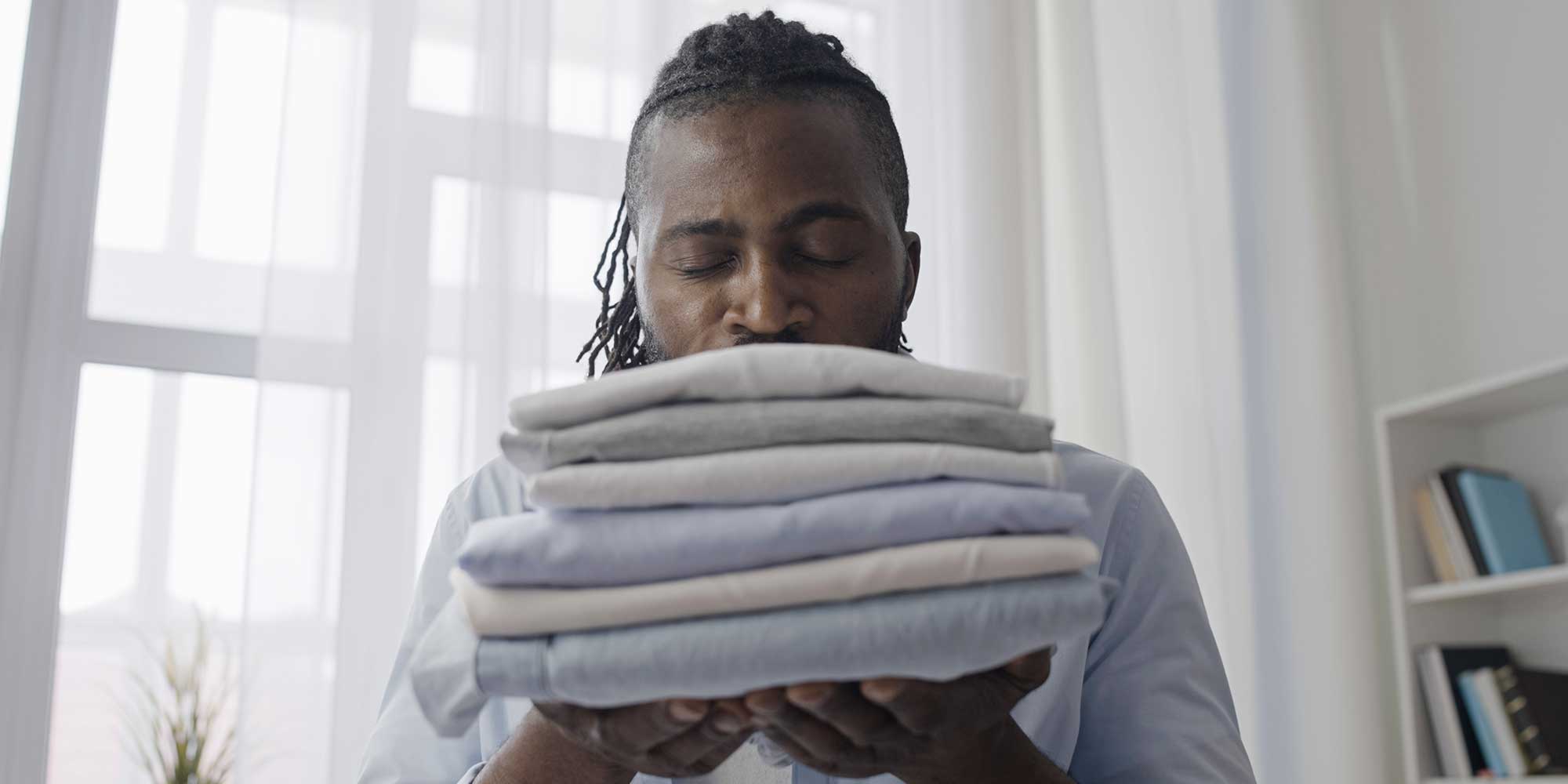
Scent boosters are colourful, dissolvable pearls or beads that you add to your washing machine drum with every load. They come in a variety of fragrances, so you can add your scent of choice to your clothes, towels and bedding.
Do scent boosters actually work?
They may feel like a quick fix to get your laundry smelling its best, and there's no denying that they can provide a real fragrance hit, but they're not necessarily the best choice for your washing machine or the planet.
Because they typically contain a small amount of plastic, most scent boosters are not fully biodegradable. This means they can be washed into rivers and seas, contributing to water pollution (read 'Should we be worried about microplastics?' to find out more). But some manufacturers are beginning to combat this by using water-soluble alternatives.
Scent boosters can cause problems for your washing machine, too. If you use too many, they can begin to build up in the pipes and won't go away unless you run regular hot service washes.
Can you use essential oils instead?
There's a lot of contradictory advice online about using essential oils in your washing machine to make your laundry smell better, but we'd advise against it.
Some people advise mixing a few drops of an essential oil with a liquid detergent, or combining a drop or two with water and adding it directly to the detergent drawer. Others suggest mixing five to 10 drops with a cup of water and pouring into a spray bottle to use on damp clothing after washing.
But essential oils are flammable, so it's not a great idea to apply them in any concentration to the clothes you wear. And they should certainly never be used in a tumble dryer.
Essential oils can also cause skin irritation, and as they're oils, they can stain some delicate fabrics.
Our guide to washing symbols and what they mean will help you get the best results every time




